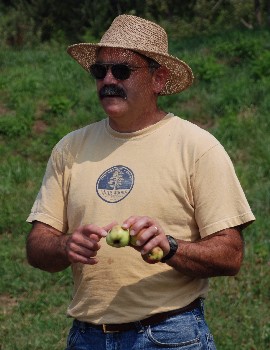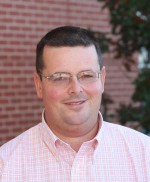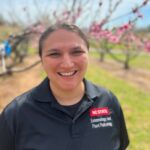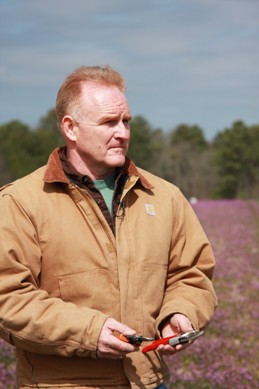Faculty
go.ncsu.edu/readext?66617
en Español / em Português
El inglés es el idioma de control de esta página. En la medida en que haya algún conflicto entre la traducción al inglés y la traducción, el inglés prevalece.
Al hacer clic en el enlace de traducción se activa un servicio de traducción gratuito para convertir la página al español. Al igual que con cualquier traducción por Internet, la conversión no es sensible al contexto y puede que no traduzca el texto en su significado original. NC State Extension no garantiza la exactitud del texto traducido. Por favor, tenga en cuenta que algunas aplicaciones y/o servicios pueden no funcionar como se espera cuando se traducen.
Português
Inglês é o idioma de controle desta página. Na medida que haja algum conflito entre o texto original em Inglês e a tradução, o Inglês prevalece.
Ao clicar no link de tradução, um serviço gratuito de tradução será ativado para converter a página para o Português. Como em qualquer tradução pela internet, a conversão não é sensivel ao contexto e pode não ocorrer a tradução para o significado orginal. O serviço de Extensão da Carolina do Norte (NC State Extension) não garante a exatidão do texto traduzido. Por favor, observe que algumas funções ou serviços podem não funcionar como esperado após a tradução.
English
English is the controlling language of this page. To the extent there is any conflict between the English text and the translation, English controls.
Clicking on the translation link activates a free translation service to convert the page to Spanish. As with any Internet translation, the conversion is not context-sensitive and may not translate the text to its original meaning. NC State Extension does not guarantee the accuracy of the translated text. Please note that some applications and/or services may not function as expected when translated.
Collapse ▲Jim Walgenbach
 Professor and Extension Specialist, Department of Entomology
Professor and Extension Specialist, Department of Entomology
Ph.D., Entomology, University of Wisconsin, Madison
M.S., Entomology, University of Wisconsin, Madison
B.S., Plant Pathology, University of Wisconsin, Madison
Dr. James “Jim” Walgenbach conducts applied research and extension programs on fruit and vegetable crops important in western North Carolina. His program focuses on the development and implementation of insect pest management programs for fruiting vegetables and tree fruits.
Since joining N.C. State University in 1986, Dr. Walgenbach has conducted research on a variety of pest management issues facing the commercial peach industry. A recent threat he is following is the population increase of the Asian stink bug.
Dr. Walgenbach conducts much of his research at the Mountain Horticultural Crops Research Station in Mills River, and annually conducts numerous on-farm trials in the mountain and Piedmont regions of North Carolina. He also works closely with county Extension personnel, growers and the crop protection industry to implement modern, sustainable pest management programs.
Wayne Mitchem
 Researcher and Extension Associate, Department of Horticultural Science
Researcher and Extension Associate, Department of Horticultural Science
M.S., Crop Science, N.C. State University
B.S., Agronomy, N.C. State University
Mr. Wayne Mitchem is an Extension associate and researcher. Based at the Mountain Horticultural Crops Research and Extension Center in Mills River, Mitchem researches herbicide screening for fruit crops and weed/crop interactions as they relate to critical weed-free periods for fruit. In short, he’s developing ways to better manage weeds and reduce their impact on crops.
As an Extension associate, Mitchem’s responsibilities include weed management in tree fruit and vine crops in North Carolina, South Carolina and Georgia. Periodically, Mitchem also updates recommendations in state and regional publications.
Mitchem emphasizes Good Agricultural Practices (GAPs) certification. Mitchem spends time addressing grower needs at production meetings, on-farm visits and demonstrations.
David Ritchie
 Professor and Extension Specialist, Plant Pathology
Professor and Extension Specialist, Plant Pathology
Ph.D., Plant Pathology, Michigan State University
M.S., Plant Pathology, Michigan State University
B.A., Biology, Goshen College
Dr. David Ritchie is a professor and Extension specialist with the department of plant pathology. His program focuses on discovery and problem-solving research dealing with bacterial and fungal plant pathogens that cause diseases of fruit and vegetable crops. The goal of his research is to develop knowledge that leads to more durable disease resistance and disease management strategies.
Problem-solving and integrated disease management research is conducted on two fungal diseases of peaches, brown rot and peach scab. Ritchie has been involved with the evaluation of registered and potentially soon-to-b-registered fungicides for control of brown rot, peach scab, and bactericides for bacterial spot at the Sandhills Research Station. This research is used to develop product label information such as use rate and efficacy.
Sara Villani
 Assistant Professor and Extension Specialist, Plant Pathology
Assistant Professor and Extension Specialist, Plant Pathology
Ph.D., Plant Pathology, Michigan State University
B.S., Chemistry, State University of New York at Geneseo
The goals of my extension program are to ensure that stakeholders have the most current information on pathogen biology and management practices in accessible, understandable, and relevant formats. We use a team approach comprised of cooperative extension agents, private consultants, growers, and regulatory agencies to meet the dynamic challenges of disease management. Through direct stakeholder interactions such as field days, grower-meetings, and on-farm visits, and indirect stakeholder interactions such as social media, disease-fact sheets, and chemical management guidelines, I provide education programming local and regional stakeholders and the greater community. Specifically objectives of my extension program include: 1) Development of a sustainable fungicide and antibiotic-resistance monitoring service; 2) Diagnostics and management recommendations for diseases of fruit crops; 3) Developing mobile device apps and other software for predictive disease models, diagnostics, and management; and 4) Evaluating fungicide, bactericide, and cultural control efficacy in conventional and organic management programs.
Dr. Michael Parker
 Professor, Department of Horticultural Science
Professor, Department of Horticultural Science
Ph.D., Horticulture, Michigan State University
M.S., Horticulture Michigan State University
B.S., Agricultural Engineering Technology and Horticulture, Michigan State University
Dr. Mike Parker is a tree fruit specialist researching cultural management strategies, rootstock performance in the southeast, peach thinning, planting systems and orchard floor management. He also evaluates replant strategies to increase orchard productivity and profitability and minimize orchard inputs.
Primarily an Extension specialist, Parker works with producers and those considering planting an orchard to share the best management practices for maximum productivity. He has been involved in various projects that demonstrate a direct relationship between orchard management and tree fruit growth.
Parker has led and participated in numerous field days and pruning demonstrations. Watch the video series on this website for information on proper planting and pruning of peach trees.
In addition to peach, his research program includes apple, pecans and alternative tree fruit crops. Parker primarily conducts applied research utilizing orchards at the Sandhills Research Station in Jackson Springs and the Mountain Horticultural Crops Research and Extension Center in Mills River.


